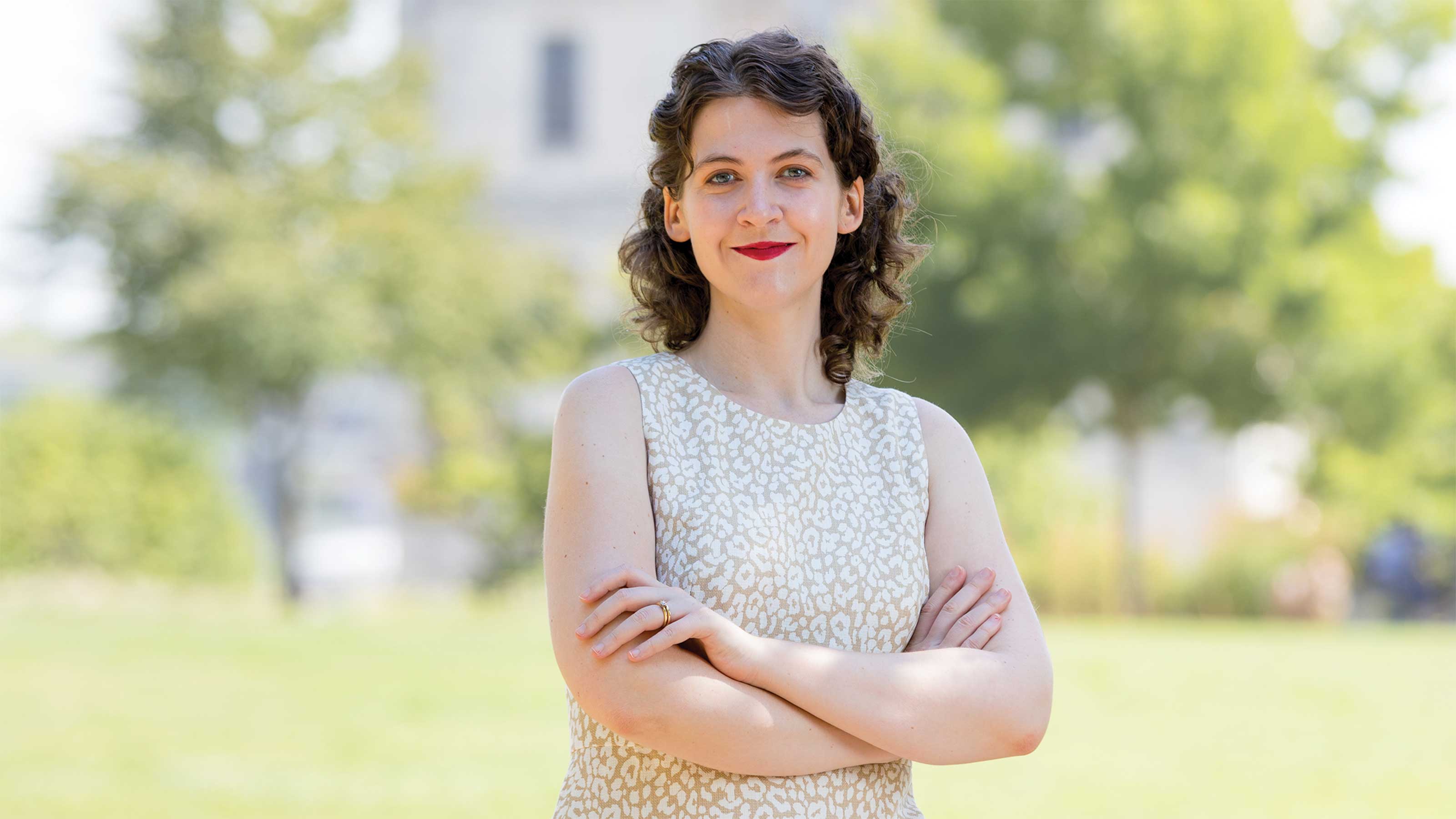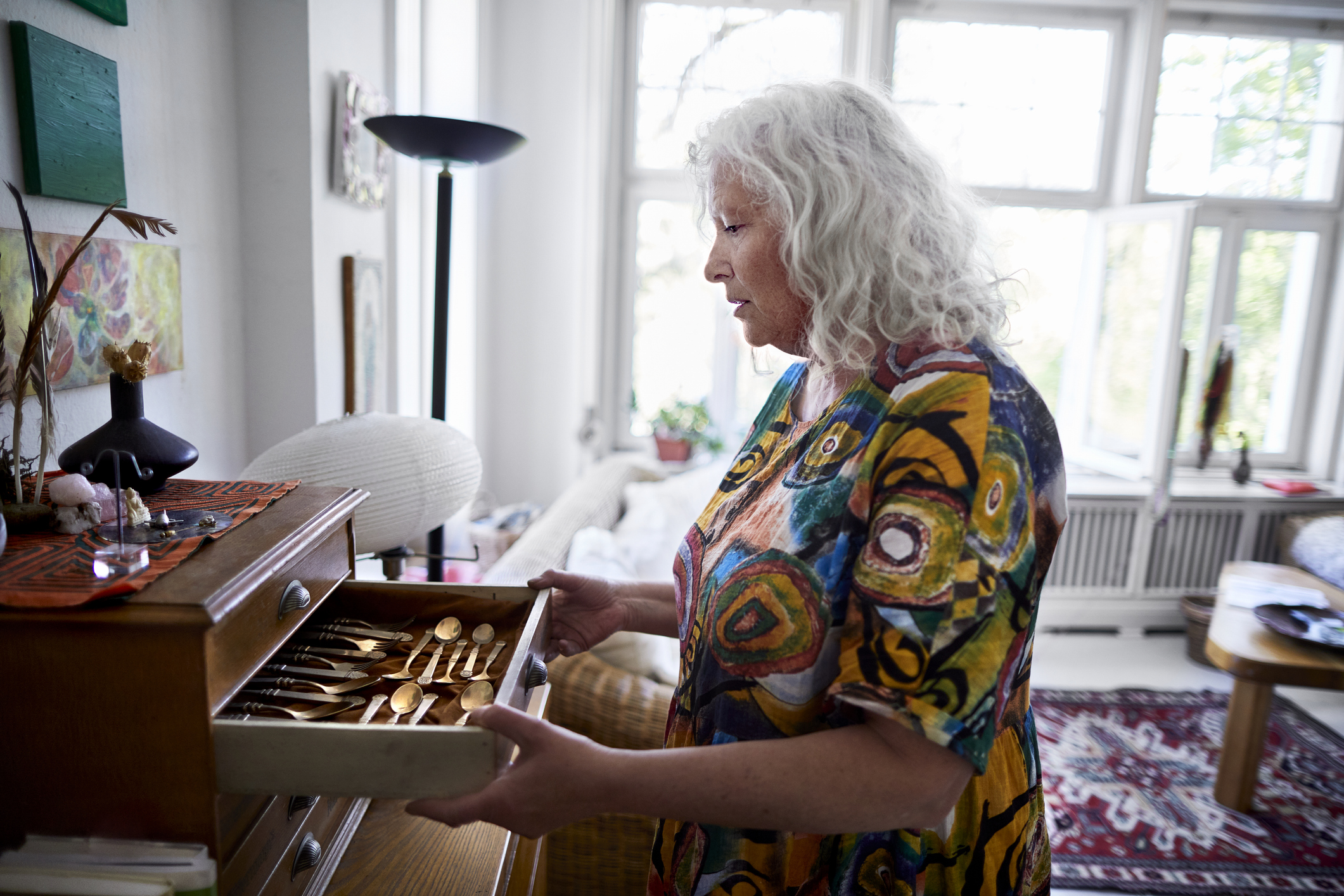Tying the Knot Post-Pandemic
This wedding planner is gearing up for a full fall season amid continuing concerns about safety.


Profit and prosper with the best of Kiplinger's advice on investing, taxes, retirement, personal finance and much more. Delivered daily. Enter your email in the box and click Sign Me Up.
You are now subscribed
Your newsletter sign-up was successful
Want to add more newsletters?

Delivered daily
Kiplinger Today
Profit and prosper with the best of Kiplinger's advice on investing, taxes, retirement, personal finance and much more delivered daily. Smart money moves start here.

Sent five days a week
Kiplinger A Step Ahead
Get practical help to make better financial decisions in your everyday life, from spending to savings on top deals.

Delivered daily
Kiplinger Closing Bell
Get today's biggest financial and investing headlines delivered to your inbox every day the U.S. stock market is open.

Sent twice a week
Kiplinger Adviser Intel
Financial pros across the country share best practices and fresh tactics to preserve and grow your wealth.

Delivered weekly
Kiplinger Tax Tips
Trim your federal and state tax bills with practical tax-planning and tax-cutting strategies.

Sent twice a week
Kiplinger Retirement Tips
Your twice-a-week guide to planning and enjoying a financially secure and richly rewarding retirement

Sent bimonthly.
Kiplinger Adviser Angle
Insights for advisers, wealth managers and other financial professionals.

Sent twice a week
Kiplinger Investing Weekly
Your twice-a-week roundup of promising stocks, funds, companies and industries you should consider, ones you should avoid, and why.

Sent weekly for six weeks
Kiplinger Invest for Retirement
Your step-by-step six-part series on how to invest for retirement, from devising a successful strategy to exactly which investments to choose.
Profile
Who: Elisabeth Kramer, age 30
What: Wedding planner
Where: Portland, Ore.
From just $107.88 $24.99 for Kiplinger Personal Finance
Become a smarter, better informed investor. Subscribe from just $107.88 $24.99, plus get up to 4 Special Issues

Sign up for Kiplinger’s Free Newsletters
Profit and prosper with the best of expert advice on investing, taxes, retirement, personal finance and more - straight to your e-mail.
Profit and prosper with the best of expert advice - straight to your e-mail.
How has the pandemic complicated your work? In early March 2020, I had a wedding the same week that Portland shut down, which meant that we went into quarantine. For that couple, their whole plan completely blew up. That was the beginning. In April through September of last year, I was just taking my entire client load and trying to figure out what the heck we were doing. Every wedding I had changed plans.
What about this year? Entering 2021, I had an in-box filled with leads, which is not abnormal for a wedding vendor. In the wedding industry, it’s called engagement season, from Thanksgiving to St. Valentine’s Day. They were for weddings with a minimum of 50 guests, often 75, 100 or 150 guests, for the next four to five months. Those weddings could legally not happen in January.
You have been educating people about the rules? I’ve been trying to answer the question, Can I have a legal wedding in Oregon right now? That is also the title of a blog post I have on my website. I also created a suite of 33 resources about pandemic wedding planning, including a variety of communication templates for how to create a COVID safety policy for a wedding in 2021 and how to share it with the two groups of people that are at a wedding in person—guests and vendors.
Has there been a crush of weddings this summer? There is this sense that everybody who wanted to get married is now getting married, and couples are out of luck if they didn’t book anyone. This is the narrative right now. I don’t believe it’s true. Yes, lots of people are busy because this summer there are a lot of legacy clients—people who moved their plans from 2020 to 2021. But I get e-mails every day from couples for whom this isn’t over. They’re immunocompromised, they have children under the age of 12, they have family members who are refusing to get the vaccine, and they’re asking what they should do. So, as much as I feel that things are getting better, we have to continue to talk about this stuff, even when it’s not fun.
You must have taken a big financial hit. This has been the hardest year of my professional life. I have seen revenue losses between 80% to 90%, and I am on unemployment. I’m not working with clients in person until September. That’s when my season officially starts. Vendors are just completely wiped; they are entering a season completely drained.
Do you think the wedding industry will change post-COVID? The wedding industry is a very unregulated space. Through my work as the cofounder of Altared, an event for wedding vendors who want to change the wedding industry, I speak regularly with people who are in the industry all over the country and internationally. Regulations for weddings have been very unclear throughout the pandemic. And of course, as we have all learned during COVID, what is legal (if there are even any regulations, which sometimes there are not) is not always what is safe. But COVID has taught us a lot about boundaries. And that is a long overdue conversation in the wedding industry. In a lot of the conversations I have with wedding professionals, people are much smarter now about what works for them financially, emotionally, for their families and for their health.
Profit and prosper with the best of Kiplinger's advice on investing, taxes, retirement, personal finance and much more. Delivered daily. Enter your email in the box and click Sign Me Up.

Emma Patch joined Kiplinger in 2020. She previously interned for Kiplinger's Retirement Report and before that, for a boutique investment firm in New York City. She served as editor-at-large and features editor for Middlebury College's student newspaper, The Campus. She specializes in travel, student debt and a number of other personal finance topics. Born in London, Emma grew up in Connecticut and now lives in Washington, D.C.
-
 Tariffs: An Uninvited Valentine's Day Guest
Tariffs: An Uninvited Valentine's Day GuestExpect to pay more for flowers and chocolates this year or find creative alternatives to save on Valentine's Day without looking cheap.
-
 Should I sell my silverware and gold jewelry now that prices are high?
Should I sell my silverware and gold jewelry now that prices are high?My family silver and gold have sentimental value, but I hardly use them. Should I sell? We asked a professional metals dealer and investment adviser to weigh in.
-
 One Country Just Pushed the Retirement Age to 70. Is the US Next?
One Country Just Pushed the Retirement Age to 70. Is the US Next?These countries have the highest and lowest retirement ages in the world — but that doesn’t give the full picture of which is best and worst for retirement.
-
 9 Types of Insurance You Probably Don't Need
9 Types of Insurance You Probably Don't NeedFinancial Planning If you're paying for these types of insurance, you may be wasting your money. Here's what you need to know.
-
 Amazon Resale: Where Amazon Prime Returns Become Your Online Bargains
Amazon Resale: Where Amazon Prime Returns Become Your Online BargainsFeature Amazon Resale products may have some imperfections, but that often leads to wildly discounted prices.
-
 Roth IRA Contribution Limits for 2026
Roth IRA Contribution Limits for 2026Roth IRAs Roth IRAs allow you to save for retirement with after-tax dollars while you're working, and then withdraw those contributions and earnings tax-free when you retire. Here's a look at 2026 limits and income-based phaseouts.
-
 Four Tips for Renting Out Your Home on Airbnb
Four Tips for Renting Out Your Home on Airbnbreal estate Here's what you should know before listing your home on Airbnb.
-
 Five Ways to a Cheap Last-Minute Vacation
Five Ways to a Cheap Last-Minute VacationTravel It is possible to pull off a cheap last-minute vacation. Here are some tips to make it happen.
-
 How Much Life Insurance Do You Need?
How Much Life Insurance Do You Need?insurance When assessing how much life insurance you need, take a systematic approach instead of relying on rules of thumb.
-
 When Does Amazon Prime Day End in October? Everything We Know, Plus the Best Deals on Samsonite, Samsung and More
When Does Amazon Prime Day End in October? Everything We Know, Plus the Best Deals on Samsonite, Samsung and MoreAmazon Prime The Amazon Prime Big Deal Days sale ends soon. Here are the key details you need to know, plus some of our favorite deals members can shop before it's over.
-
 How to Shop for Life Insurance in 3 Easy Steps
How to Shop for Life Insurance in 3 Easy Stepsinsurance Shopping for life insurance? You may be able to estimate how much you need online, but that's just the start of your search.